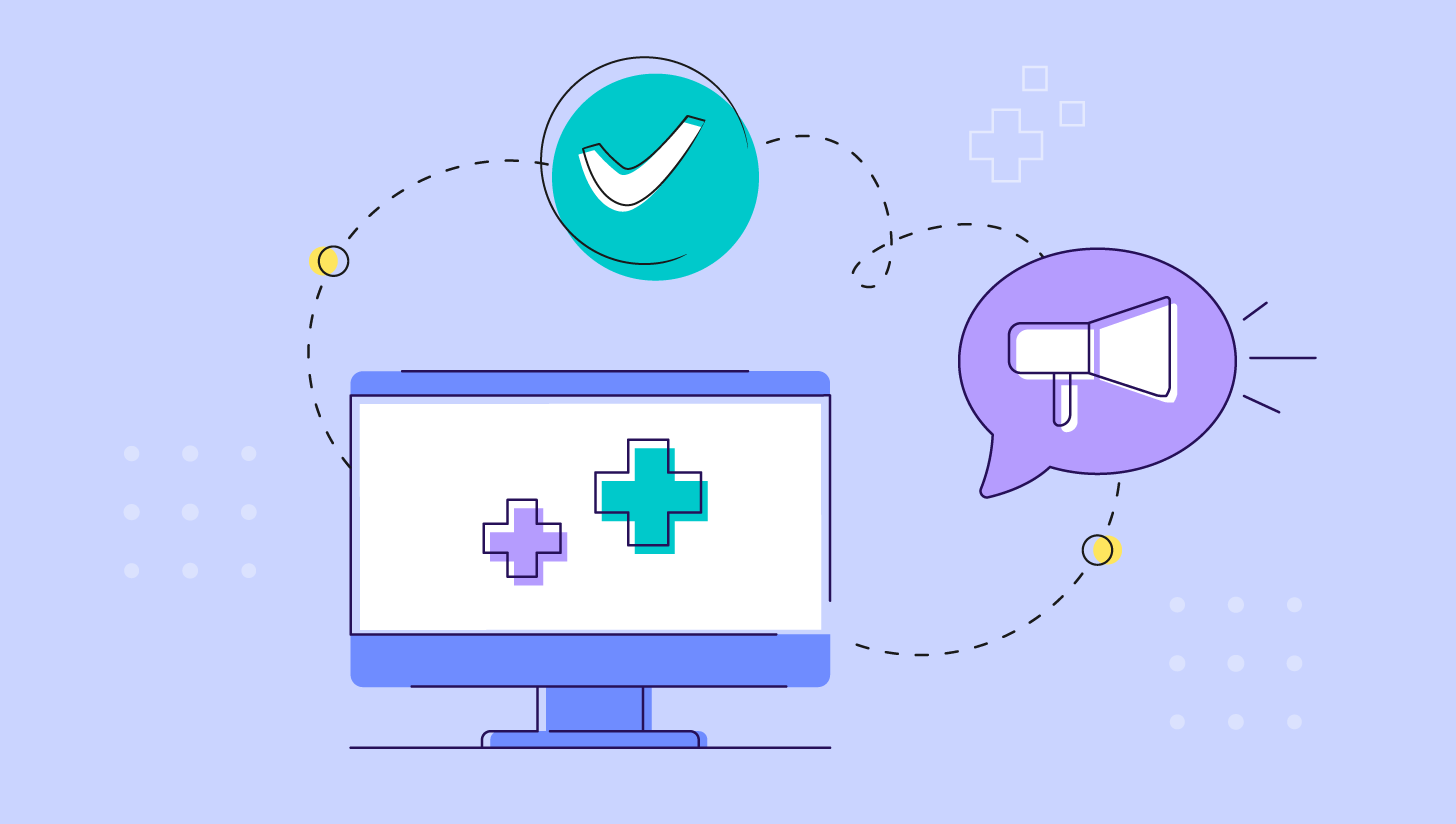



Healthcare tech is a fast-growing sector. New companies constantly enter the market while existing providers seek opportunities to broaden their footprints. Even those with outstanding products have difficulty standing out and attracting the right prospects.
Download our ultimate guide on developing and implementing your SaaS healthcare marketing strategy.
Moreover, the healthcare B2B sales cycle is notoriously lengthy, and marketers must navigate the non-linear B2B buyer journey to deliver the right message at the right time. So, how do you connect with prospects, build trust, and nurture them to convert?
Healthcare content marketing has become an essential component in any healthcare SaaS marketing strategy because it addresses the challenges of the complex B2B sales cycle and buyer journey while meeting the demands of healthcare tech decision-makers.
HIMSS Media's health information and technology content marketing research found that 90% of buyers in the healthcare IT sector struggle to find high-quality, trusted content to inform their decisions.
These decision-makers seek information that provides fresh healthcare industry perspectives, updates on new technology, guidance on regulatory compliance, and how others use a solution to achieve success.
Meanwhile, the long purchasing path in the healthcare industry means marketers must stay top of mind via multiple touchpoints over an extended period, with a strategy to nurture potential buyers and address their concerns throughout the process.
A healthcare content marketing strategy can help you meet your target audience’s expectations and stay on their radar by positioning your brand as a trusted ally. The right content delivered at the right time can also help you accelerate the B2B buyer journey to drive conversions.
Here’s why SaaS companies turn to healthcare content marketing to accelerate the B2B sales cycle:
Let’s explore how to leverage healthcare content marketing to position your brand favorably, accelerate the B2B sales cycle, and turn prospects into customers:
Healthcare tech buyers seek trusted industry perspectives to help them stay current with trends and new technologies. Publishing high-value content to share unique ideas and insights can position your executives as thought leaders and your brand as a valuable resource, helping you stand out in the marketplace.
Identify topics relevant and valuable for your key audiences. You may survey their customers to generate insights and create content to demonstrate that you can help them with their needs and challenges.
Find out what your audience wants to learn about their customers to craft survey questions. Then, analyze the results from your audience's perspective and tie the insights back to your technology to build awareness about your solution. Focus on sharing unique insights, and don’t turn your thought leadership content into an ad!
Healthcare content marketing demonstrates the expertise and people behind your products while keeping your brand top-of-mind. A robust strategy helps build trust with your audience to accelerate the long and complex healthcare technology buying cycle.
For example, you may add videos to your healthcare content marketing plan to highlight your team's knowledge and humanize your brand. You may leverage social media to have two-way conversations with your followers and answer their questions or implement healthcare public relations tactics to reach new, high-quality prospects.
Meanwhile, incorporating the right keywords in your website and blog content can boost your SEO to achieve long-term visibility on relevant search results so your target audience will associate topics they care about with your brand. You may also implement local SEO tactics to attract search traffic and generate leads.
Nurture leads throughout the long B2B sales cycle
HIMSS Media found that the average buying cycle for healthcare technology is around twelve months. During that time, decision-makers conduct research online while various functional teams may weigh in on compliance, security, medical utility, technical compatibility, and other aspects.
As such, marketers must address the concerns and requirements of the different personas through various digital channels at the right time to accelerate the pipeline.
Healthcare content marketing provides the framework and opportunity to reach various stakeholders and address their priorities through multiple campaigns and channels during the intense research process. It helps engage your audience throughout the B2B buyer journey by delivering targeted content that aligns with each persona’s needs and customer lifecycle stage.
The HIMSS Media research found that as many as nine individual contributors with different priorities are involved in a typical purchasing decision. For example, a CIO may want to know how your product integrates with the organization's tech stack, and the CFO may focus on the financial implications of investing in your solution.
A robust healthcare content marketing strategy helps you address different buyer personas' questions and concerns at various customer lifecycle stages (i.e., awareness, consideration, and decision) with targeted messaging and information.
Additionally, healthcare content marketing supports broader marketing efforts across the B2B buyer journey. For example, blog posts addressing audiences in the awareness stage, priming the readers to see your product favorably when they reach the consideration and decision stages.
Any B2B marketer must remember that they're not marketing to titles, functions, leads, accounts, organizations, or verticals. You're communicating to individuals — emotions play a role in their decision-making process, and they're more likely to buy from brands relatable to them.
A healthcare content marketing strategy can help you add a human element to bring your brand to life, connect with the audience emotionally, and show the readers how you share their vision of elevating healthcare using technology.
The HIMSS Media study also found that powerful narratives about how solutions save lives, support communities, and drive innovation inspire and engage readers. You may incorporate storytelling techniques (e.g., case studies and testimonials) in your content to draw in the audience and make your product's impact memorable.
A robust healthcare content marketing strategy helps you nurture high-quality leads and convert them into loyal customers. But navigating the nuances, implementing the latest best practices, and coordinating all the moving parts is challenging.
The good news is that you don't have to go it alone.
At Spot On, we help healthcare tech companies develop effective content marketing strategies to accelerate their pipelines. Book a meeting to see how we can help you design a healthcare marketing plan and produce content that resonates with your audience, build trust, and drive conversions.



Rebecca Graves co-founded Spot On in 2012. As a partner and leader of client services, she takes immense pride in being in charge of “client happiness.” The role allows her to wield her problem-solving skills while fostering big-picture perspectives and team building. Rebecca’s more than 35 years of experience have equipped her to translate strategic planning expertise for the advancement of tech companies transforming the healthcare, financial, and legal industries.
Get the latest and greatest posts sent straight to your inbox.
